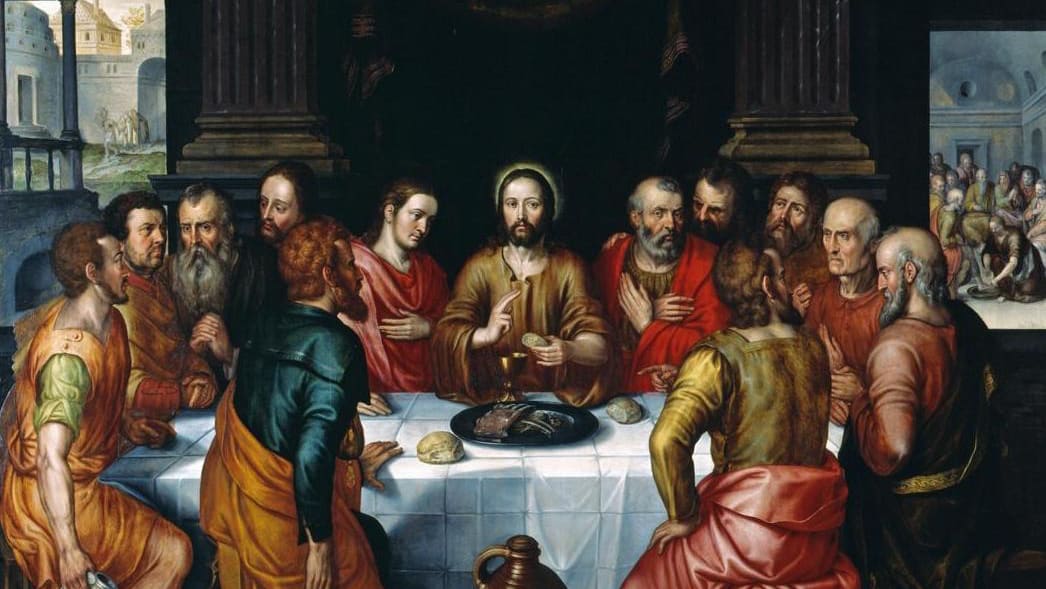There are many stories of persons whose lives have been ruined by winning the lottery; the sudden acquisition of huge amounts of money that they didn’t have to work for ended up warping their values, poisoning relationships, and causing spiritual blindness and other big problems. Could such a thing happen to an entire nation? Surprisingly, the answer is yes. The tiny island paradise of Nauru—N-A-U-R-U—is part of Micronesia, located northeast of Australia. With tropical weather, beautiful beaches, and abundant fishing, the island’s 14,000 residents had a peaceful, healthy, and comfortable lifestyle, allowing them to live in harmony with God, nature, and one another. However, it was discovered the island was quite rich in phosphates, a key ingredient in fertilizer, and extensive mining operations occurred, which over the years made Nauru’s government and people very wealthy.
This good fortune actually became a curse. Before long, the people—almost all of whom were Christians—lost their spiritual fervor, and instead became obsessed with material wealth. For instance, all of their homes were filled with the latest technological devices and status items, and—even though there was only one road on the entire island—most families bought two or more luxury automobiles. No one worked at fishing any more, as the government imported large amounts of food from other countries. Eventually, the unrestricted mining operations ruined the island’s natural beauty. The people themselves suffered even worse consequences. They were once all healthy and trim, but today 90 percent of them are obese, and the rates of diabetes and heart disease—previously very low—have skyrocketed. A once-generous and religious people who freely thanked God for His many blessings instead became greedy and unhappy (William J. Bausch, 60 More Seasonal Stories, p. 147). Because of original sin, we are born with a predisposition toward selfishness, laziness, and spiritual blindness—all of which can be aggravated by material wealth. Thus, it’s essential that we be on guard—for prosperity must not be allowed to make us forget God, or blind us to our neighbor’s needs.
St. Paul (1 Timothy 6:11-16) tells us that we must “keep the commandment without stain or reproach until the appearance [or coming] of our Lord Jesus Christ,” and the commandment he refers to is simple: loving God with all our hearts, and loving our neighbor as ourselves. Earthly riches can make it much harder for us to do this; it’s a natural human tendency or temptation that the more we have, the more self-centered we become. The prophet Amos (6:1, 4-7) warns of God’s judgment on wealthy persons who were completely unconcerned about the suffering of their poor neighbors, and Jesus (Luke 16:19-31) reinforces this point with His parable about the rich man who ended up in hell after years of ignoring the needs of the poor beggar Lazarus. Generosity and compassion while we’re here on earth are absolutely essential if we wish to live one day in Heaven.
A little boy named Bobby was playing with his even younger cousin Janie. He was so proud of his new birthday gift, a shiny red wagon, that he put her in it and was pulling her down the sidewalk, even though she kept saying “Stop!” while trying to climb out of the wagon. Seeing his aunt, Bobby boasted, “Aunt Mary, I’m being nice to Janie.” His aunt exclaimed, “But she doesn’t like riding in a wagon!” Bobby replied, “But she has to stay in the wagon, because I only want to make her happy doing the things I like to do!” (Knight’s Master Book of 4000 Illustrations, p. 611).
Many people—perhaps including the rich man in Our Lord’s story in the Gospel—aren’t deliberately mean or uncaring; they’re just so self-absorbed they only see or want to help others if it can be done in a way that they enjoy. We can become so caught up in our own pursuits that we never even see or consider the needs, feelings, and desires of those around us. This may be true in many different ways. For instance, even in these difficult economic times, we as Americans have more opportunities, and a higher standard of living, than most of the people who’ve lived in human history—but many U.S. citizens give little or nothing to their church or to charity. The biblical standard is 10% of one’s income—but the average Protestant gives only 2.2%, and the average Catholic only 1.1%. What do you imagine God thinks of that? Another way in which many Christians fall short is not getting involved in their churches or communities. An even bigger area in which Christians often fall short is in failing to vote only for God-fearing, pro-life candidates willing to fight for and uphold our nation’s founding values. In less than two months here in Michigan, we will have the opportunity to defend human life by voting No on Proposal 3, which would make ours the most radically pro-abortion state in the country. If Proposal 3 passes because not enough Catholics and other Christians voted against it, I suspect God’s judgment on the Church in Michigan will be severe.
In our technological society, it’s never been so easy to ignore others. This is the time of year when many women become football widows as their husbands become obsessed with sports and largely ignore their families. However, anyone—male or female, young or old—can become so caught up with the internet, streaming devices, and smartphones that loved ones are ignored, relationships neglected, and spiritual and religious duties left undone. Within our families, it’s so easy to become self-absorbed and even uncaring and selfish, leading to a failure to thank, compliment, and support one another. In many homes today, we don’t really have united families pulling together, but individuals in a house who happen to be related by blood, but who are determined to go their own way. None of this is God’s plan. He doesn’t want us to be clueless and to act in an uncaring and unthinking manner that might lead us to hell; instead, He asks us to choose to be present to Him and to one another. The more we’ve been blessed by Him, the more we need—for our own spiritual well-being and eternal happiness—to live lives of awareness, generosity, and compassion; anything less than this just won’t be enough.








